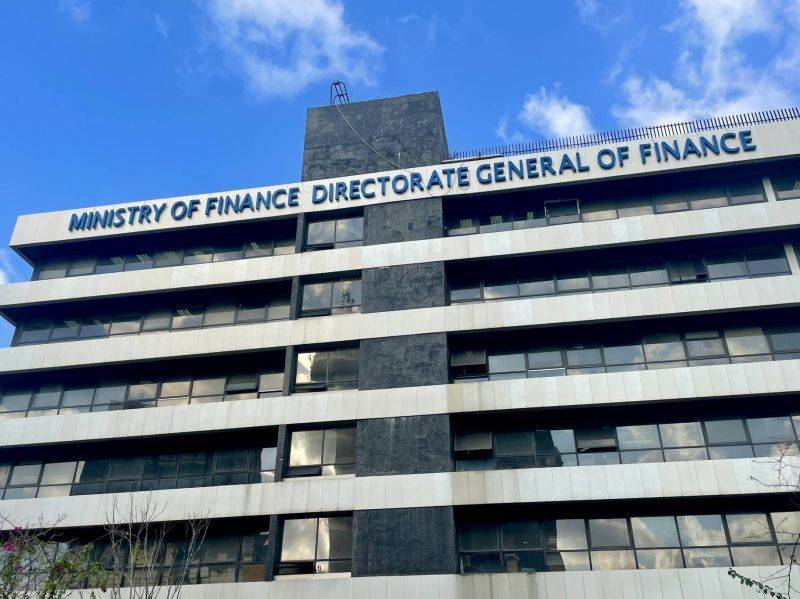
The TVA headquarters in the Palais de Justice area, Beirut. (Credit: P.H.B./L'Orient-Le Jour)
BEIRUT — Around 3,000 civil servants "turned off their computers and went home" Thursday upon hearing that Lebanese caretaker Prime Minister Najib Mikati had decided to freeze productivity bonuses. The strike comes in tandem with protests held by dozens of Lebanese Army veterans and actions taken by several other public sector workers demanding salary increases to offset crippling inflation and ensure fair wages.
The controversial bonuses were reserved for only select areas of public administration — in particular the Ministry of Finance, several surveillance institutions, the staff of the Grand Serail, staff of Council of Ministers president headquarters and staff of the Presidential Palace.
The temporary bonus would have been equivalent to 20 percent of the civil servants' salaries and would not have affected pensions. Those currently receiving the payments will continue receiving them for the next two months, but a decision from the Council of Ministers will determine whether payments will be authorized for the following months.
The 2024 budget made permanent the 2023 salary adjustments that increased civil servants' wages sevenfold, responding to the inflation that rendered their old salaries basically useless.
The budget also set aside LL 20,000 billion ($223.5 million at current market rates) to finance these "productivity bonuses." Expenditure allocated to salaries and wages amounts to over 45 trillion pounds in the budget ($513 million) or 17 percent of total expenditure, according to L'Orient-Le Jour's calculations, not including the productivity bonus.
The fact that these bonuses are reserved only for certain workers has, not surprisingly, led to frustration in the civil service. Finance Ministry officials say they understand the reaction of their colleagues, equally affected by the economic crisis and the devaluation of the national currency and salaries. "Of course we'd prefer all our colleagues to be included in this measure," says Finance Ministry union representative Hassan Wehbe.
But he says he doesn't understand the strong reaction against this particular decree, "when no one reacted when benefits were decreed for some 40,000 public professors worth 15,000 billion pounds, or for some 600 judges, worth 1,000 billion."
He also noted that this particular decree should have passed in November 2023, but was repeatedly postponed. "Today, they're using the movement of retired military personnel in the streets as a pretext to postpone it yet again," he says.
For him, even with this bonus, salaries are still very inadequate, with civil servants who received the equivalent of 3,000 dollars before the crisis unable to expect a salary of more than 600 dollars, even with salaries multiplied by seven.
Significant repercussions
The fact that civil servants at the Ministry of Finance have gone on strike could have major repercussions if it is extended to the entire civil service. "If we shut down the system, no civil servant will be able to cash in his or her salary, and the state will no longer have access to its sources of funding from various administrations," explains Wehbe. All public sector salaries and government revenues pass through the Ministry of Finance, which forwards them to the Banque du Liban (BDL).
Wehbe assures that Ministry of Finance civil servants intend to stand firm and continue their strike if the Council of Ministers does not adopt the bonus decree this Friday, Feb. 23, at its scheduled meeting at the Grand Serail.
"We find ourselves in a situation where those excluded from the decree will go on strike if it is adopted, and those included in it will stop working if it is not passed."
Mikati's government therefore finds itself in an awkward position on the eve of its meeting, the agenda of which doesn't even include this topic. The atmosphere of anger among retired military personnel, to whom the outgoing Prime Minister has promised a response since Feb. 10, is sure to further complicate matters.
Outgoing Finance Minister Youssef Khalil did not respond to L'Orient-Le Jour's requests for comment.
This article was originally published in French on L'Orient-Le Jour.